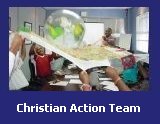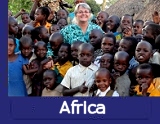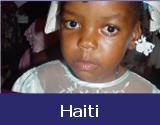United Caribbean Trust
Conservation - land
In memory of
Conservation - sea
Endangered species
Turtle stories
|
|
home >> caribbean >> caribbean
ecotourism>> caribbean
conservation>>

CARIBBEAN
- conservation
(f) Coastal Vulnerability and Risk Assessment.
Three countries (Barbados, Grenada, and Guyana) have agreed to participate
in the development of vulnerability and risk assessments for their coastal
areas. The component will begin with a review of coastal vulnerability
assessment models and the application of the IPCC common methodology in
these three countries and throughout the region. With the execution of
the three vulnerability and risk assessments, representatives from these
three countries will receive special training, and information will be
transferred throughout all the agencies dealing with coastal zone management
issues. A regional workshop will be held to present the results of the
three case studies to the entire region. Manuals will be prepared for
the execution of coastal vulnerability and risk assessments, and a public
awareness and education program will be conducted to raise the level of
public consciousness concerning the vulnerability of coastal areas.
(g) Economic Valuation of Coastal and Marine Resources.
This component will include the design and implementation of pilot studies
in the Commonwealth of Dominica, Saint Lucia, and the Republic of Trinidad
and Tobago on the economic valuation of resources in selected coastal
ecosystems at risk from sea level rise. Each of the three pilot studies
will focus on an ecosystem and associated economic activities. Using existing
information and input from other project components, the pilot studies
will identify resources of significance, resource uses, and threats from
sea level rise. Each pilot study will then use alternative approaches
to estimate market and non-market values of resources at risk. The pilot
studies will illustrate the use of valuation data, in some cases by demonstrating
the development of environmental accounts with linkages to national accounting
frameworks, in others by demonstrating cost-benefit and other decision-making
frameworks for selecting among environmental management approaches. Capacity-building
activities under this component will include the training of regional
and local personnel in the use of alternative resource valuation strategies,
the development of environmental accounts, and cost-benefit analysis.
In addition, the results of the pilot studies will be used to develop
and disseminate appropriate techniques for use throughout the region.
(h) Formulation of Economic/Regulatory Proposals.
This component will implement two pilot studies in Antigua and Barbuda
and Saint Kitts and Nevis to demonstrate the design and use of economic
and regulatory approaches to environmental protection in response to threats
from sea level rise. The component will demonstrate how innovative approaches
to environmental regulation, such as the use of economic incentives, can
provide flexible, cost-effective alternatives to traditional "command
and control" regulatory policies. In addition, the two pilot studies
will address methods for generating funds to finance other programs aimed
at mitigating the impacts of global climate change. Under this component,
local and regional personnel will be trained in the design of economic-based
regulations and other innovative approaches for coastal and marine management,
as well as in program finance for environmental management. The results
of the pilot studies will be used to develop training materials for use
in regional workshops and will serve as input for the development of a
region-wide policy framework.
(i) Enabling the preparation of national Communication in Response to
Commitments to the UNFCCC.
This component will enable St. Vincent and the Grenadines to prepare its
initial national communication to the United Nations Framework Convention
on Climate Change (UNFCCC). This component has the following elements:
start-up activities; establishment of an Information Network and a Web
Site; preparation of a report on national circumstances; preparation of
green house gases (GHG) inventory following the guidelines adopted by
the UNFCCC; planning for adaptation to global climate change, concentrating
on impacts on coastal areas and agricultural and water supply sectors;
and preparation of the Initial National Communication to UNFCCC.
|
|


 


|







